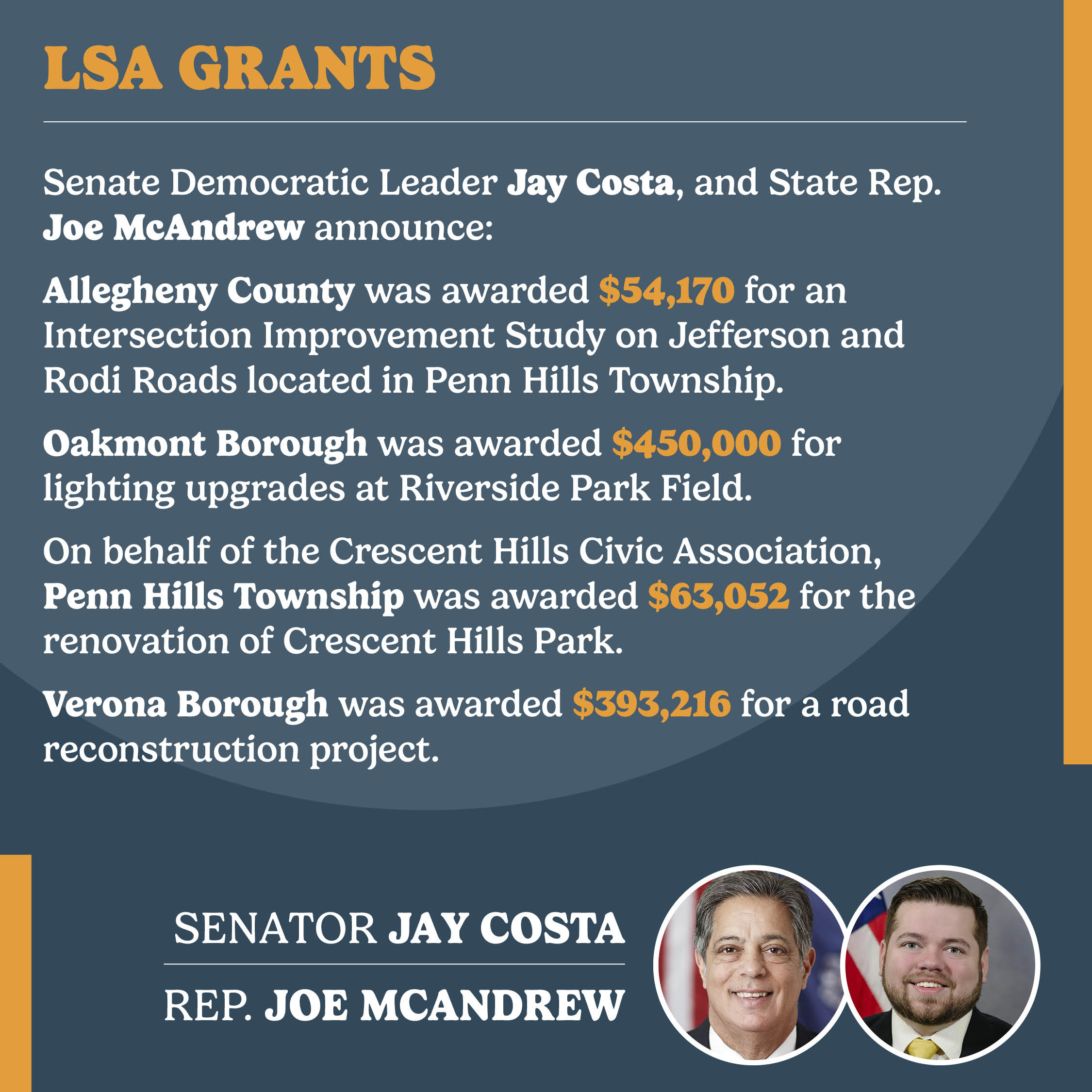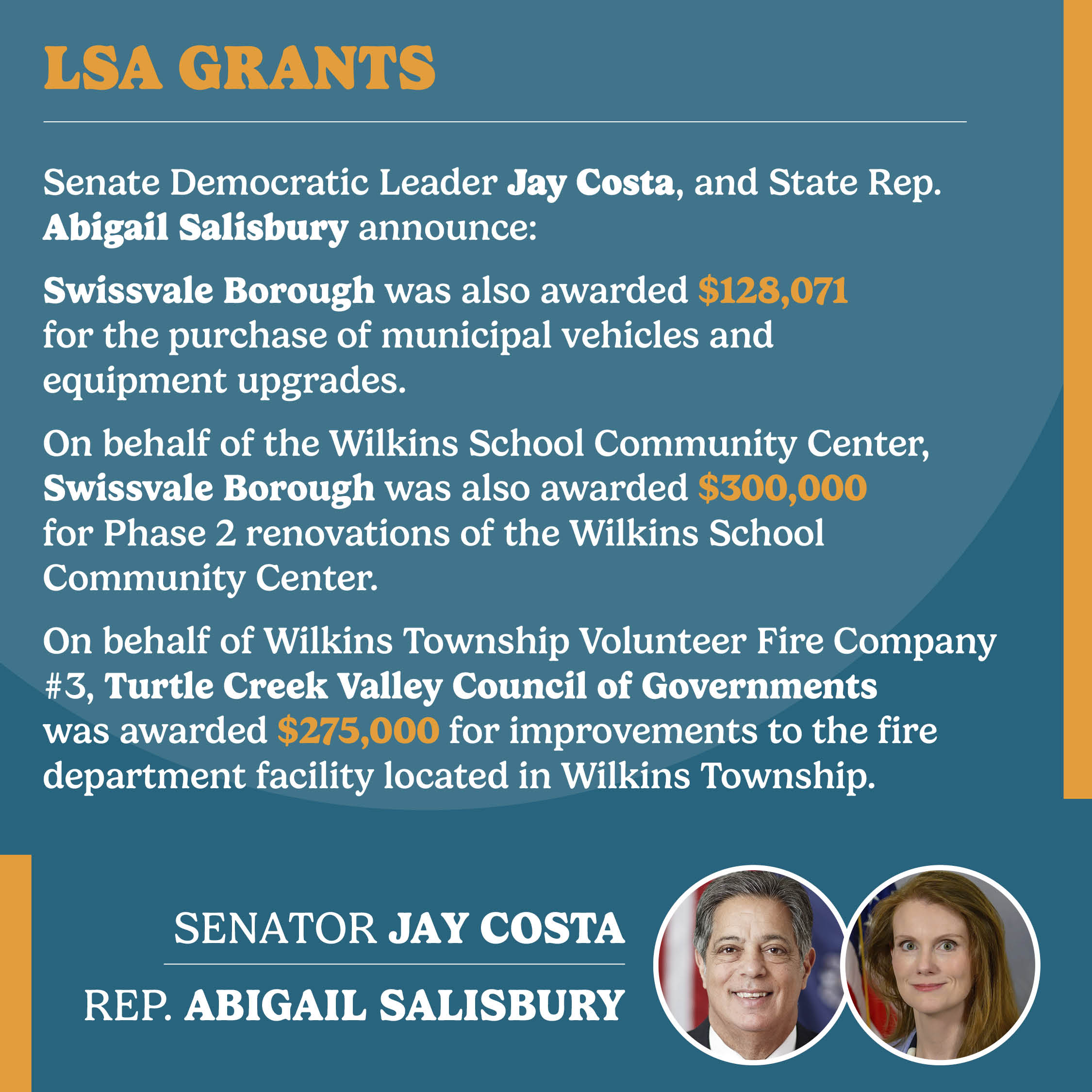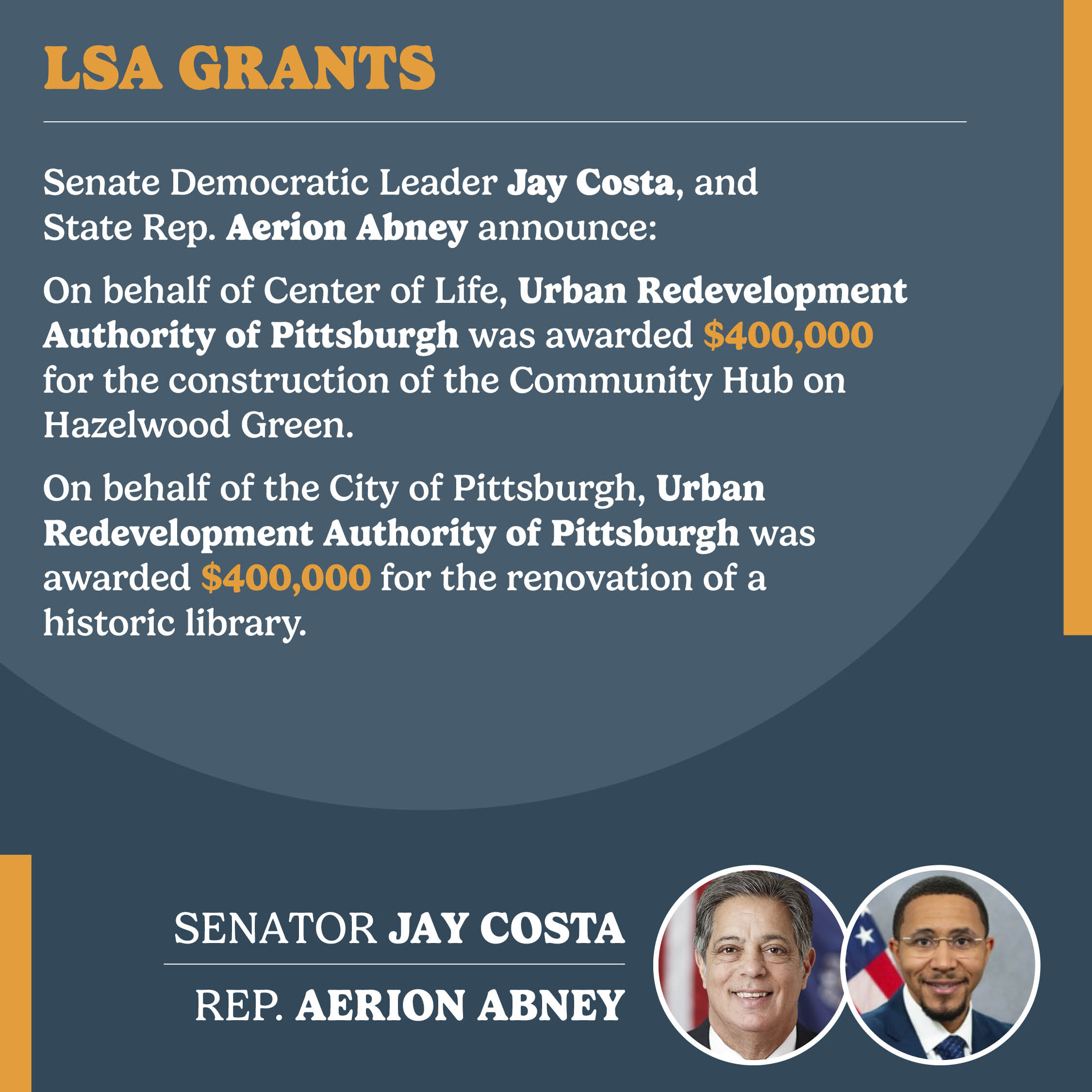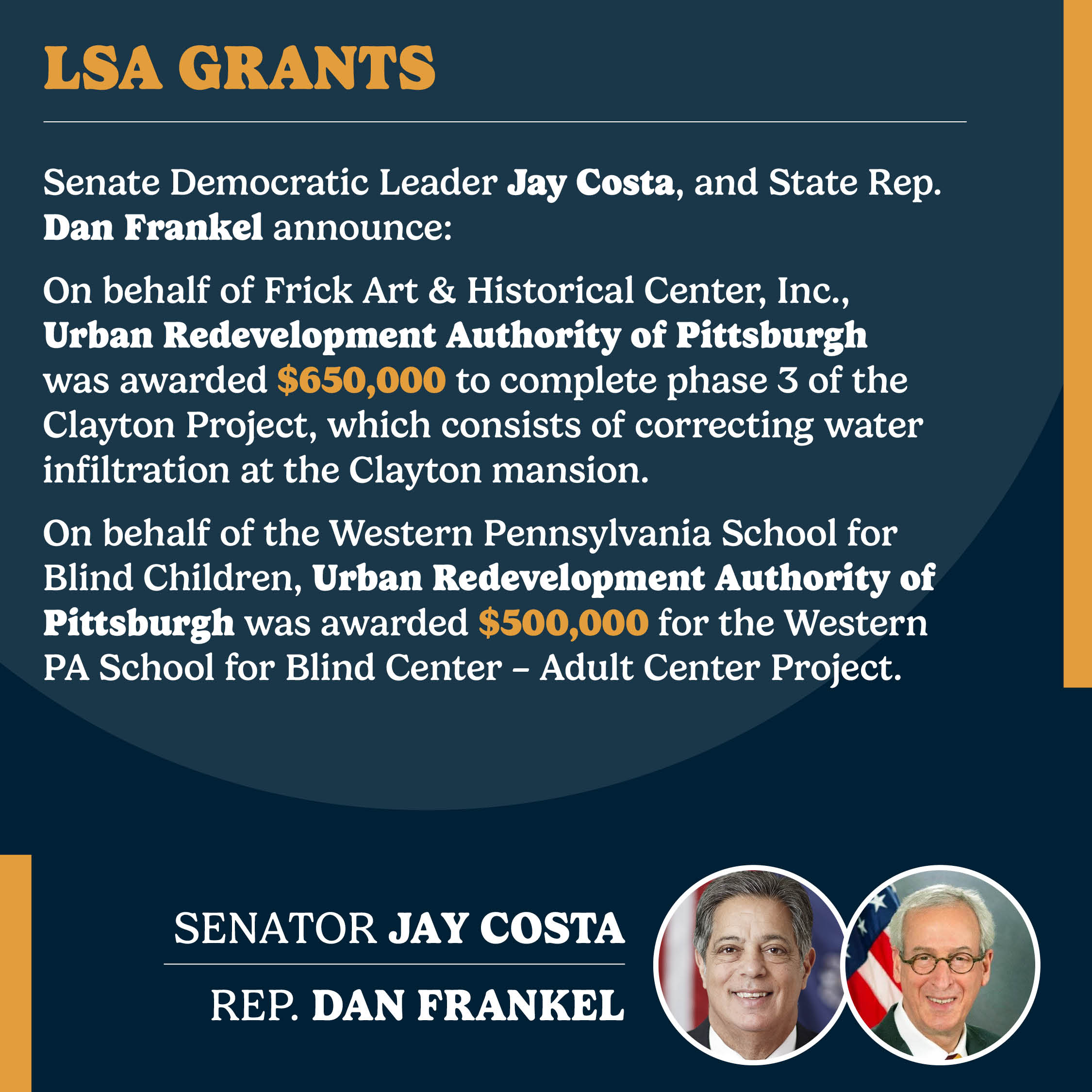Harrisburg, PA — January 27, 2026 − Senator Maria Collett (D-12, Montgomery, Caucus Chair) and Senate Democratic Leader Jay Costa (D-43, Allegheny) announced plans to introduce a new resolution affirming that constitutional rights guaranteed by the United States and Pennsylvania Constitutions apply to all people within the Commonwealth.
The resolution, co-prime-sponsored by twenty-two members of the Senate Democratic Caucus, responds to recent fatal shootings by federal immigration officers and a growing pattern of enforcement actions that raise serious constitutional concerns, including detaining individuals without arrest, intimidating bystanders, and conducting unlawful searches.
Statement from Senator Maria Collett:
“Every public official — from the President to the newest federal officer — swears an oath to uphold the Constitution. That oath is not conditional. It does not bend to political preference or administrative convenience. Pennsylvanians deserve a government that stands up for their rights when they are threatened.”
Statement from Senator Jay Costa:
“I am appalled and dismayed as I watch the ongoing degradation of Americans’ most basic civil rights – rights guaranteed to us by our Constitution and affirmed time and time again by our Courts. I am proud to add my name to this resolution and recommit to defending the hard-won Constitutional freedoms we cherish so dearly.”
About the Resolution:
Senators Collett and Costa’s resolution:
- Condemns the use of deadly force by federal immigration enforcement officers in recent incidents.
- Affirms that constitutional protections apply to everyone in the United States.
- Calls for impartial investigations and accountability for any unlawful actions.
- Urges federal leadership and Congress to exercise oversight and ensure adherence to constitutional standards.
In closing, Senator Collett said: “Our Constitution is more than a document — it is a promise. A promise that power will be restrained, that dignity will be protected, and that every person will be treated with fairness under the law. In moments when that promise is threatened, leaders must speak clearly and act decisively. This resolution demonstrates to the public that there are leaders in Harrisburg they can trust to uphold the Constitution, reaffirming our commitment to that promise and our dedication to the people we serve.”
In addition to the resolution introduced today, Senator Collett has sponsored legislation to unmask ICE agents(SB 1071, led by Senators Amanda Cappelletti and Nikil Saval) and prohibit unlawful ICE arrests and detainments within the Commonwealth (led by Senator Art Haywood).
###
PITTSBURGH, PA – January 22, 2026 − Today, Senator Jay Costa joins State Representatives from Allegheny County to announce grants from the Small Water and Sewer Grant Program.
“I am delighted to be announcing the recipients of these Small Water and Sewer dollars to benefit our communities,” said Senator Costa. “Across the 43rd district, the projects funded by these grants will ensure local families can access clean, potable water free from contaminants. As always, it’s been an honor to work with my colleagues in the House of Representatives to deliver this critical funding to benefit our constituents who call Allegheny County home.”
With Representative Abigail Salisbury, Senator Costa announces the following Small Water and Sewer grant awardees:
- Churchill Borough was awarded $391,022 for Churchill Stormwater Projects.
- Edgewood Borough was awarded $375,000 for Monongahela Way/Nine Mile Run Culvert Improvements.
- Wilkinsburg Borough was awarded $300,000 for Wilkinsburg Highland Way and Beacon Hill Sanitary Force main and Pump House Controls Replacement.
- Township of Wilkins was awarded $200,000 for Penhurst Drive Sanitary Sewer Improvements.
With Representative Joe McAndrew, Senator Costa announces the following Small Water and Sewer grant awardees:
- Verona Borough was awarded $199,883 for Sanitary Sewer Lining.
- Municipality of Penn Hills was awarded $400,000 for Penn Hills Gascola EQ Facility Concrete Repairs.
Learn more about the Small Water and Sewer program here.
Learn more about how Senate Democrats are fighting for every Pennsylvanian here.
###



PITTSBURGH, PA – January 20, 2026 − Today, Senator Jay Costa joins State Representatives from Allegheny County to announce grants from the Multimodal Transportation Fund.
“I am delighted to be announcing the recipients of these Multimodal Transportation Fund dollars to benefit our communities,” said Senator Costa. “Across the 43rd district, the projects funded by these grants will ensure local families can travel safely throughout their communities. I look forward to seeing these dollars improve our municipalities and the daily experiences of our fellow residents. I am honored to work with my fellow Senate and House Democratic colleagues to improve our roadways in ways that demonstrate how we can make state government work for working people.”
With Representative Abigail Salisbury, Senator Costa announces the following awardees from the Multimodal Transportation Fund:
- Borough of Wilkinsburg was awarded $500,000 to reconstruct Graham Boulevard located in Wilkinsburg Borough.
- Friends of the Riverfront, Inc. was awarded $450,000 to extend the Three Rivers Heritage Trail located in Swissvale Borough.
- Hosanna House, Inc. was awarded $750,000 for sidewalk, crosswalk, and alleyway improvements around Penn Lincoln Green in Wilkinsburg Borough.
- Swissvale Borough was awarded $700,000 for Phase 5 streetscape improvements along Monongahela Avenue located in Swissvale Borough.
- Wilkins Township was awarded $529,199 to upgrade the traffic signal at the intersection of Brown Avenue and Roland Road located in Wilkins Township.
With Representative Dan Frankel, Senator Costa announces the following awardees from the Multimodal Transportation Fund:
- Walnut Capital-McKee, L.P. was awarded $553,809 for safety and streetscape improvements at the Louisa Street steps in Pittsburgh City.
With Representative Joe McAndrew, Senator Costa announces the following awardees from the Multimodal Transportation Fund:
- Oakmont Community Foundation was awarded $230,636 to realign Allegheny Avenue in Oakmont Borough.
- Verona Borough was awarded $550,075 for roadway and pedestrian improvements on Jones Street located in Verona Borough.
Learn more about the Multimodal Transportation Fund here.
Learn more about how Senate Democrats are fighting for every Pennsylvanian here.
###
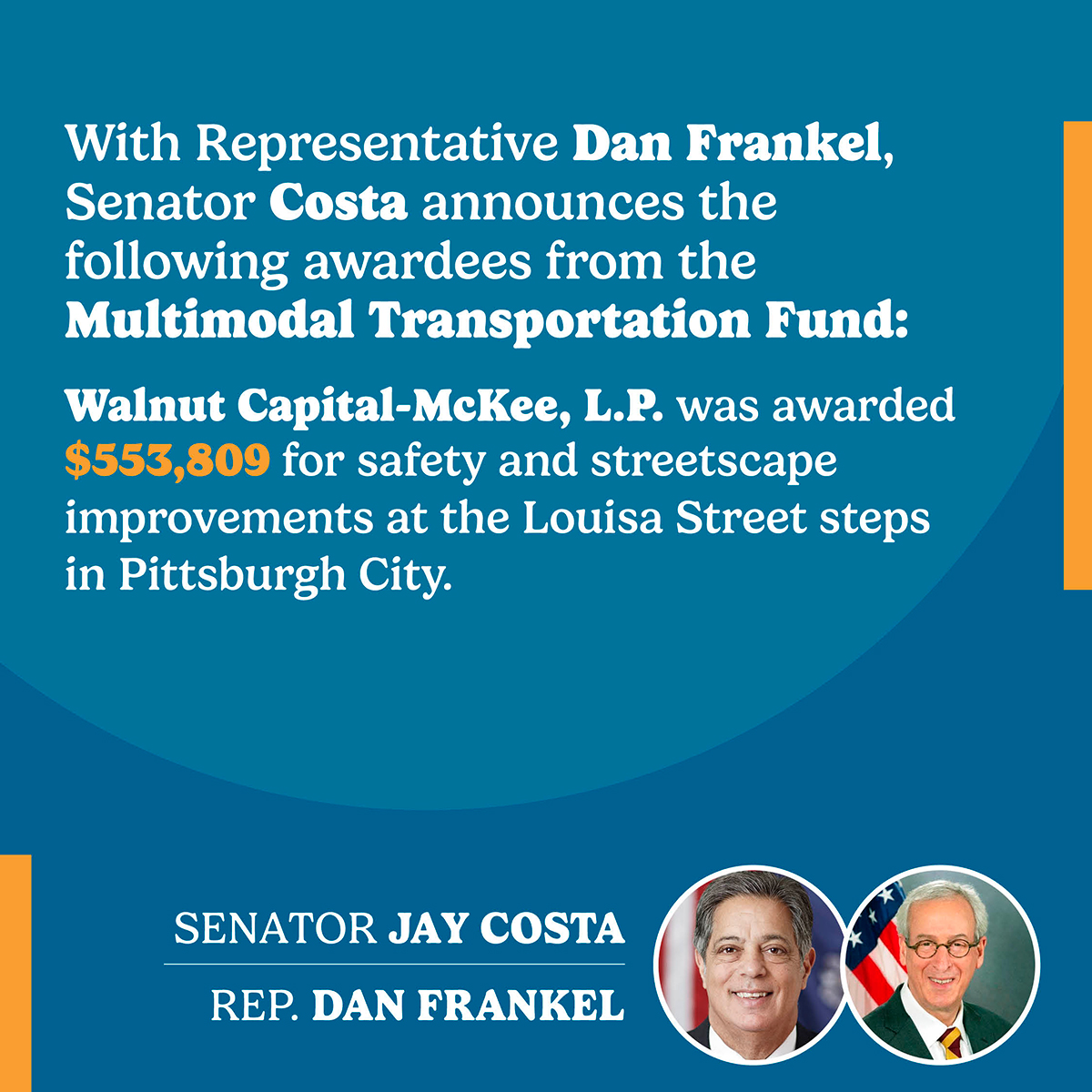

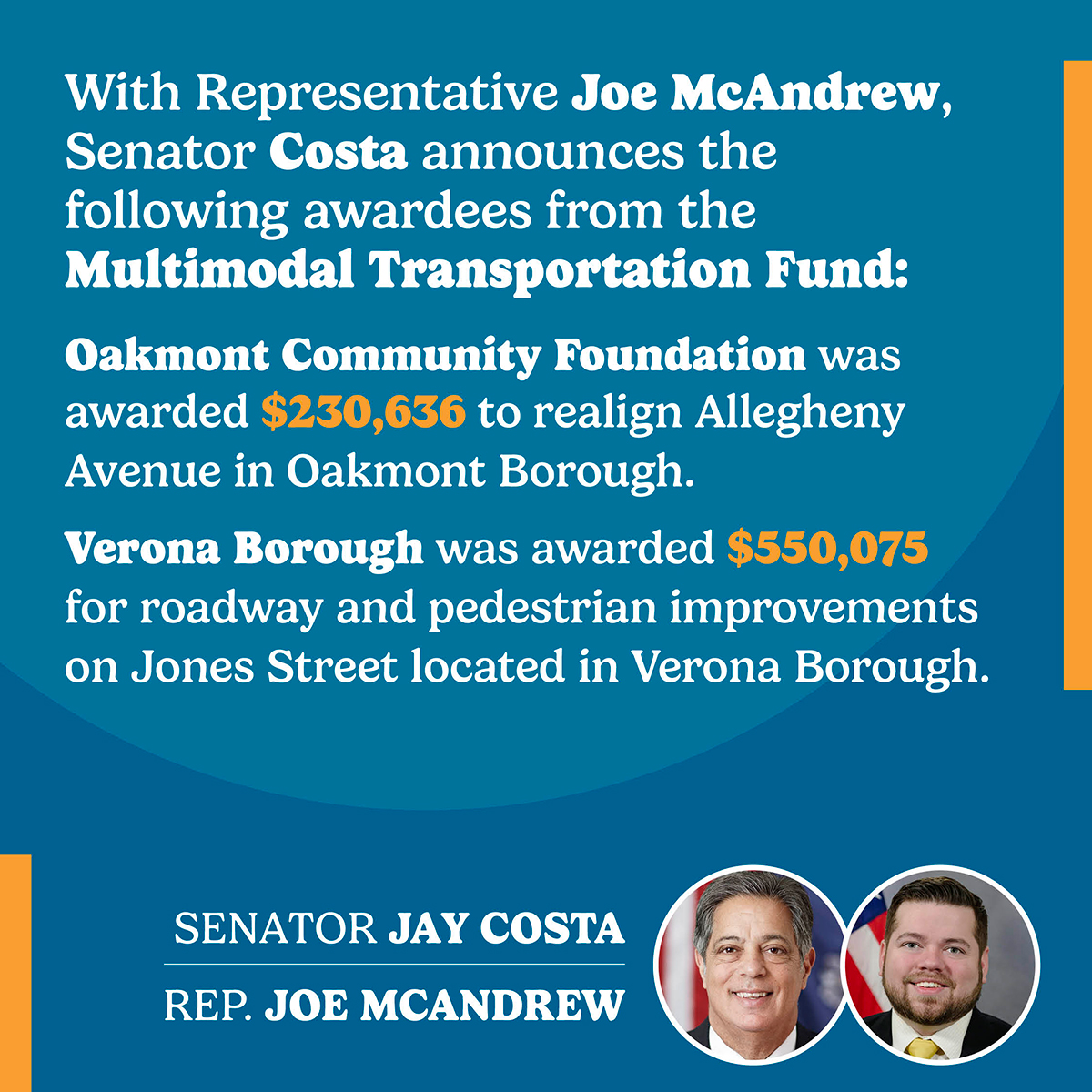
HARRISBURG, PA − January 6, 2026 − Today, State Senator Art Haywood, and Senator Jay Costa, Democratic Party Leader, gathered in the Main Rotunda of the Pennsylvania State Capitol to commemorate the fifth anniversary of the January 6, 2021 insurrection and to honor the law enforcement officers who courageously defended democracy and the rule of law.
Joining the Senators were several members of the Senate Democratic Caucus, Pastor Hank Johnson of Brethen in Christ U.S church in Mechanicsburg, and Lana Walmer of Market Square Presbyterian Church in Harrisburg.
The commemoration was held in remembrance of those who lost their lives, in recognition of the officers who ran toward danger, and in gratitude for the sacrifices made by law enforcement officers and their families in defense of the nation’s democratic institutions. The event underscored that honoring law enforcement and speaking truthfully about January 6 is not a partisan exercise, but a moral obligation rooted in respect for democracy, dignity, and peace.
“The United States is a nation of laws, norms, democracy, and justice. Having a law enforcement background myself, I will never forget watching officers run towards danger as rioters attacked our nation’s capital five years ago,” said Leader Costa. “By issuing blanket pardons to hundreds of people convicted of attacking the capitol, President Trump’s message to law enforcement was that he and his administration will pick and choose when to have their backs, and that’s downright unacceptable. I am recommitting myself and my entire caucus to restoring decorum, dignity, and peace to our halls of power as we observe the fifth anniversary of this terrible chapter in US history.”
Senator Haywood emphasized that the purpose of the gathering was to center the humanity, courage, and sacrifice of law enforcement officers who stood in defense of democracy.
“Today, we raise our voices to say to law enforcement that we see you, we honor you, and we thank you for defending our democracy,” said Senator Haywood. “We encourage all Americans to join us in support of the Capitol Police and all law enforcement. Members of Congress, staff and visitors who in the capitol on January 6, 2021.”
“On this day five years ago, the integrity and strength of our democracy was tested by violence and destruction. As we remember this dark day in America’s history and those who lost their lives, it’s important to denounce any and all political violence,” said Senator Vincent Hughes. “Let us disagree peacefully. Let us work together towards solutions even if we may differ on the best way to get there. It’s the responsibility of every leader in America to call out political violence for the poison that it is and encourage a commitment to peace and the rule of law.”
Senators Haywood and Costa stressed that January 6 must be remembered with honesty and care, not as a political talking point, but as a moment that tested the nation’s commitment to the rule of law. Both expressed hope that, with time, history will more fully honor those who protected democratic institutions and speak truthfully about the attempt to overturn a lawful election and undermine constitutional governance.
The commemoration concluded with a call to recommit to democratic norms, reject political violence, and uphold the dignity of law enforcement officers who continue to serve as guardians of public safety and constitutional order.
###
HARRISBURG, December 23, 2025 − State Sen. Jay Costa and state Rep. Joseph McAndrew today announced $3 million in state funding to support the Municipality of Penn Hills with its public works planned transportation improvements.
The funding comes from the state Transportation Department’s Multimodal Transportation Fund and is earmarked for Penn Hills’ street paving and reconstruction program and sidewalk improvements.
“This funding helps our everyday residents,” said McAndrew, D-Allegheny. “While traditionally these roads are the responsibility of the municipality to maintain, this funding helps offset that burden and works to prevent the need to raise property taxes on a municipal level for this budgetary need.”
“I am pleased and honored to be announcing these grant dollars with Representative Joe McAndrew,” said Costa, D-Allegheny. “This funding will ensure that everyone who uses the roads is safe on their journey, from our drivers to our public transit riders to our pedestrians. I’m so grateful this funding is moving ahead.”
The Multimodal Transportation Fund provides grant funding to municipalities, councils of governments, businesses, economic development organizations, public transportation agencies, and ports and rail freight entities to improve transportation assets and enhance communities. The projects support the safety and accessibility of Pennsylvania’s infrastructure.
Applications for the next round of MTF grants will open on Jan. 5 and will be due by Feb. 13, with awards being announced in the summer. More information about the program and funded projects is available at the PennDOT website.
PITTSBURGH, PA – Today, Senator Jay Costa joins State Representatives from Allegheny County to announce grants for the Statewide Local Share Account (LSA) and Act 13 Programs. Administered by the Pennsylvania Department of Community and Economic Development, these funds can be use for projects in the public interest and those that improve the quality of live for members of a community.
“I am delighted to be announcing the recipients of these LSA dollars to benefit our communities,” said Senator Costa. “These dollars will help deliver safety, quality of life, and basic needs to our friends and neighbors across the 43rd district. I look forward to seeing these dollars improve our municipalities and the daily experiences of our fellow residents. I was pleased to work with each of my House colleagues to advocate for and secure these important grants for all the awardees.”
“Today, we bring forward funding that invests in the future of our communities, whether it’s where our kids play or updating our infrastructure for modern needs,” said Representative Joe McAndrew. “I’m looking forward to what’s next!”
With Representative Joe McAndrew, Senator Costa announces the following awards:
- Allegheny County was awarded $54,170 for an Intersection Improvement Study on Jefferson and Rodi Roads located in Penn Hills Township, Allegheny County. The study will include current traffic counts, review two existing traffic signals, complete signal and stop control warrants, calculate turn lane lengths, review sight distance issues and research crash data.
- Oakmont Borough was awarded $450,000 for lighting upgrades at Riverside Park Field. The field is used by the Riverview School District for athletic events for football, baseball soccer, and track and field. However, the use of the field is limited due to the current lack of lighting.
- On behalf of the Crescent Hills Civic Association, Penn Hills Township was awarded $63,052 for the renovation of Crescent Hills Park. This will include milling the surface of the court, crack sealing, court paving, court striping, and the removal and re-installation of court equipment.
- Verona Borough was awarded $393,216 for a road reconstruction project. Work will include excavation, base reconstruction, and the installation of new Superpave binder and wearing courses. Six ADA-compliant ramps will be added, and traffic control measures will be in place during construction.
“The new grants will fund the infrastructure improvements, building renovations and new equipment our municipalities need to deliver critical services, from plowing our streets and paving our roads to fighting blight, to keeping clean water flowing for residents,” Rep. Salisbury said. “I’m thankful to CFA and our local partners for helping to bring this funding home.”
With Representative Abigal Salisbury, Senator Costa announces the following awards:
- Braddock Hills Borough was awarded $200,000 for roadway improvements. Park Avenue, Fourth Street, and Ardmore Manor Drive show significant deterioration of the concrete roadway indicative of a failure in the roadway’s base. The work would consist of the milling the road surface, base repairs as needed, installing binder and asphalt wedge curb as directed.
- Churchill Borough was awarded $450,000 to make roadway improvements to multiple roads. The proposed project will involve paving Valiant Drive from Fenwick Drive to the dead end; Fenwick Drive from Beulah Road to Lewin Lane; Lancewood Drive from Fenwick Drive to the dead end; and Camelot Drive from Fenwick Drive to the dead end.
- Forest Hills Borough was awarded $200,000 for sanitary sewer replacement improvements.
- Rankin Borough was awarded $175,000 to replace and upgrade the HVAC system at the municipal building.
- Swissvale Borough was awarded $325,000 for renovations to a building used by the Swissvale Food Pantry. This project will renovate the interior and exterior of the building including, but not limited to, accessible restrooms, electrical upgrades, HVAC upgrades, entrance doors, facade improvements, window replacements, flooring and interior and exterior painting.
- Swissvale Borough was also awarded $128,071 for the purchase of municipal vehicles and equipment upgrades.
- On behalf of the Wilkins School Community Center, Swissvale Borough was also awarded $300,000 for Phase 2 renovations of the Wilkins School Community Center.
- On behalf of Wilkins Township Volunteer Fire Company #3, Turtle Creek Valley Council of Governments was awarded $275,000 for improvements to the fire department facility located in Wilkins Township.
- Wilkins Township was awarded $106,250 for the planning and design of a municipal complex in Wilkins Township.
- Wilkinsburg Borough was awarded $200,000 for the renovation of the fire department living quarters.
- Wilkinsburg Borough was further awarded $181,730 for the purchase of a dump truck to replace their current 25-year-old dump truck.
“These investments will make a real difference in neighborhoods across Pittsburgh and Allegheny County,” said state Rep. Jessica Benham, D-Allegheny. “State funding for things like safer school buildings, more reliable public works equipment, and resources for first responders goes a long way toward improving the quality of life for residents.”
With Representative Jessica Benham, Senator Costa announces the following awards:
- On behalf of the Community Specialists Corporation, Allegheny County Redevelopment Authority was awarded $301,476 for the replacement of a roof on at the New Academy Charter School.
- Oliver Borough was awarded $119,124 for the purchase of a new public works vehicle, equipped with a snow plow, dump body and salt spreader.
- On behalf of The Brashear Association, Inc., Urban Redevelopment Authority of Pittsburgh was awarded $600,000 for the Cares Hilltop Community Center Creative and Analytical Play Space project.
“These grants will improve Pittsburgh’s quality of life in many ways,” Rep. Abney said. “They will help renovate buildings, create public spaces, and provide healthy food and ambulance services, among other things. These are worthwhile projects that will have lasting benefits for years to come, and I’m proud to support them.”
With Representative Aerion Abney, Senator Costa announces the following awards:
- On behalf of Center of Life, Urban Redevelopment Authority of Pittsburgh was awarded $400,000 for the construction of the Community Hub on Hazelwood Green. The facility will provide community services, educational programs, and job training.
- On behalf of the City of Pittsburgh, Urban Redevelopment Authority of Pittsburgh was awarded $400,000 for the renovation of a historic library. The building, located in the Hazelwood community, was one of Carnegie Library of Pittsburgh’s first 6 branches and the City of Pittsburgh’s main social and cultural centers.
“These investments strengthen the infrastructure and services people rely on every day, from emergency response to inclusive community facilities and accessible public spaces,” Rep. Frankel said. “This is how we create diverse and vibrant spaces for everyone to enjoy.”
With Representative Dan Frankel, Senator Costa announces the following awards:
- On behalf of Frick Art & Historical Center, Inc., Urban Redevelopment Authority of Pittsburgh was awarded $650,000 to complete phase 3 of the Clayton Project, which consists of correcting water infiltration at the Clayton mansion.
- On behalf of the Western Pennsylvania School for Blind Children, Urban Redevelopment Authority of Pittsburgh was awarded $500,000 for the Western PA School for Blind Center – Adult Center Project. WPSBC plans to expand the campus they conduct the LAVI Program at. The LAVI program includes access to occupational, physical, assistive devices and healthcare professional services.
Learn more about the LSA Program here.
Learn more about the PA Senate Democrats’ priorities for every Pennsylvanian here.








